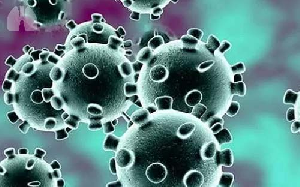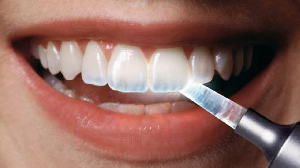
Abstract
Defective angiogenesis, incomplete thrombus revascularisation and fibrosis are considered critical pathomechanisms of chronic thromboembolic pulmonary hypertension (CTEPH) after pulmonary embolism (PE). Angiopoietin-2 (ANGPT2) has been shown to regulate angiogenesis, but its importance for thrombus resolution and remodelling is unknown.
ANGPT2 plasma concentrations were measured in patients with CTEPH (n=68) and acute PE (n=84). Tissue removed during pulmonary endarterectomy (PEA) for CTEPH was analysed (immuno)histologically. A mouse model of inferior vena cava ligation was used to study the kinetics of venous thrombus resolution in wild-type mice receiving recombinant ANGPT2 via osmotic pumps, and in transgenic mice overexpressing ANGPT2 in endothelial cells.
Circulating ANGPT2 levels were higher in CTEPH patients compared to patients with idiopathic pulmonary arterial hypertension and healthy controls, and decreased after PEA. Plasma ANGPT2 levels were also elevated in patients with PE and diagnosis of CTEPH during follow-up. Histological analysis of PEA specimens confirmed increased ANGPT2 expression, and low levels of phosphorylated TIE2 were observed in regions with early-organised pulmonary thrombi, myofibroblasts and fibrosis. Microarray and high-resolution microscopy analysis could localise ANGPT2 overexpression to endothelial cells, and hypoxia and TGF-β1 were identified as potential stimuli. Gain-of-function experiments in mice demonstrated that exogenous ANGPT2 administration and transgenic endothelial ANGPT2 overexpression resulted in delayed venous thrombus resolution, and thrombi were characterised by lower TIE2 phosphorylation and fewer microvessels.
Our findings suggest that ANGPT2 delays venous thrombus resolution and that overexpression of ANGPT2 contributes to thrombofibrosis and may thus support the transition from PE to CTEPH.
Footnotes
This manuscript has recently been accepted for publication in the European Respiratory Journal. It is published here in its accepted form prior to copyediting and typesetting by our production team. After these production processes are complete and the authors have approved the resulting proofs, the article will move to the latest issue of the ERJ online. Please open or download the PDF to view this article.
Conflict of interest: Dr. Hobohm reports personal fees from MSD, personal fees from Actelion, outside the submitted work.
Conflict of interest: Dr. Kölmel has nothing to disclose.
Conflict of interest: Dr. Niemann has nothing to disclose.
Conflict of interest: Dr. Kuempers has nothing to disclose.
Conflict of interest: Dr. Krieg has nothing to disclose.
Conflict of interest: Dr. Bochenek has nothing to disclose.
Conflict of interest: Dr. Lukasz has nothing to disclose.
Conflict of interest: Dr. Reiss has nothing to disclose.
Conflict of interest: Dr. Plate has nothing to disclose.
Conflict of interest: Dr. Liebetrau reports personal fees from Astra Zeneca, personal fees from Bayer, personal fees from Berlin Chemie, personal fees from Boehringer Ingelheim, personal fees from Daiichi-Sankyo, personal fees from Pfizer - Bristol-Myers Squibb, personal fees from Thermo-Fisher, outside the submitted work.
Conflict of interest: Dr. Wiedenroth reports personal fees from Actelion, personal fees from Bayer, personal fees from Pfizer, personal fees from MTG, personal fees from MSD, outside the submitted work.
Conflict of interest: Dr. Guth reports personal fees from Actelion, personal fees from Bayer, personal fees from GlaxoSmithKline, personal fees from Pfizer, personal fees from MSD, outside the submitted work.
Conflict of interest: Dr. Münzel has nothing to disclose.
Conflict of interest: Dr. Hasenfuß reports personal fees from Corvia, personal fees from Servier, personal fees from Impulse Dynamics, personal fees from Novartis, personal fees from AstraZeneca, personal fees from Vifor Pharma, personal fees from Berlin Chemie, other from Springer, outside the submitted work.
Conflict of interest: Dr. Wenzel has nothing to disclose.
Conflict of interest: Dr. Mayer reports personal fees from Actelion, personal fees from Bayer, personal fees from MSD, personal fees from Pfizer, outside the submitted work.
Conflict of interest: Dr. Konstantinides reports grants from German Federal Ministry of Education and Research (BMBF 01EO1003 and BMBF 01EO1503), during the conduct of the study; grants and personal fees from Bayer, grants and personal fees from Boehringer Ingelheim, grants and personal fees from Daiichi-Sankyo, personal fees from MSD, grants and personal fees from Pfizer-Bristol-Myers Squibb, grants from Actelion, outside the submitted work.
Conflict of interest: Dr. Schäfer has nothing to disclose.
Conflict of interest: Dr. Lankeit reports grants from German Federal Ministry of Education and Research (BMBF 01EO1003 and 01EO1503), during the conduct of the study; personal fees and non-financial support from Actelion, personal fees from Bayer, personal fees and non-financial support from Daiichi-Sankyo, personal fees from MSD, personal fees from Pfizer - Bristol-Myers Squibb, grants from BRAHMS, outside the submitted work.
- Received November 14, 2020.
- Accepted April 10, 2021.
- Copyright ©The authors 2021. For reproduction rights and permissions contact permissions@ersnet.org














